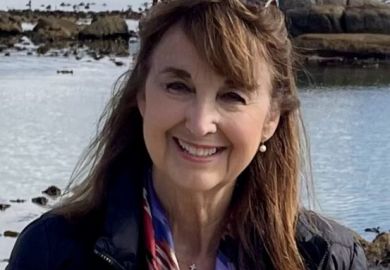Six universities in Hong Kong, Singapore, Australia and the UK have launched the International Consortium for Communication in Health Care (IC4CH), an initiative that appears to be needed more than ever given the massive gap in trust between medical professionals and the general public during the Covid-19 crisis.
Australian National University (ANU) will host the consortium for the next three years, joined by the University of Hong Kong (HKU), Nanyang Technological University, Singapore (NTU), the Queensland University of Technology, UCL and Lancaster University. The goal is to build a research and training hub to “translate cutting-edge communications research into best practice and training for safe and compassionate health care”.
Olga Zayts-Spence, director of HKU’s Research and Impact Initiative on Communication in Healthcare (RIICH), told Times Higher Education that “there had been a shift in healthcare efforts” over the eight months of the crisis.
The initial reaction to the novel coronavirus was, understandably, to pour funding and attention into medical research for vaccines and other treatments. But now there is also an acknowledgement that “Covid’s impact on psychological health, society and the economy is huge”.
“This is where the humanities come in,” said Dr Zayts-Spence, an associate professor at the HKU School of English, who has worked previously with mental health NGOs and medical professionals on communications skills.
“The arts and humanities can help in coping and healing, and also in research,” she said. “Everything is mediated through language.”
IC4CH, launched during a webinar last week, will support multi-disciplinary research spanning linguistics, psychology, text analysis and big data. One of its goals is to shed light on how experts should communicate to the public during a crisis, in the face of often overwhelming amounts of factually misleading or emotionally disturbing news.
May Lwin, an expert in digital health communications at NTU in Singapore, told the webinar that the world was facing an “info-demic”.
“People are getting thousands of messages about Covid-19, and not all information on social media is authenticated,” she said. “This combination of messaging has effects on populations’ behaviours.”
Professor Lwin said that research into online phenomena was “hugely important because, if unaddressed, government and public health authorities’ messages will not be taken seriously”.
In January, when news was just beginning to emerge of a new coronavirus in Wuhan, Professor Lwin’s team began an investigation on how the disease was being discussed on social media platforms such as Facebook, Twitter and Reddit. Over months, they analysed “very large data sets” of millions of messages.
They found a shift in sentiment, from “fear and terror of the unknown” in January and February, to “anger” during lockdowns from April to June, but also occasional “joy, hope and inspiration” in response to human interest stories about recoveries.
K. K. Luke, chair of the School of Social Sciences at NTU and one of the initiators of IC4CH, stressed the need for “more people-centred health care”.
“Our aim, in studying communications in health care, is to build on research with methodological rigour, and increase global impact,” he said. “The consortium is an international body well placed to serve this purpose.”
While the world is focused on when a Covid-19 vaccine will be approved and made available, humanities scholars speaking during the webinar questioned whether medical innovation would be enough if certain segments of society proved resistant in their behaviour.
Elena Semino, a linguistics professor at Lancaster University, said that issues like “vaccine hesitancy” long predated Covid and that “as linguists, we hope to make a contribution”. Starting in 2021, she will be the principal investigator for a new project called “Questioning Vaccination Discourse”.
Zsofia Demjen, an associate professor of applied linguistics at UCL, said that “we can collect and analyse data, understand people’s main concerns” and use that knowledge to train physicians to better communicate with patients.
Diana Slade, director of the Institute for Health Communication at ANU, said that the consortium “is an exciting development for health care communication research globally”. Its goal is to help create “a future in which healthcare is safe, compassionate, sensitive and supportive for patients, carers and clinicians”.
Register to continue
Why register?
- Registration is free and only takes a moment
- Once registered, you can read 3 articles a month
- Sign up for our newsletter
Subscribe
Or subscribe for unlimited access to:
- Unlimited access to news, views, insights & reviews
- Digital editions
- Digital access to THE’s university and college rankings analysis
Already registered or a current subscriber?








